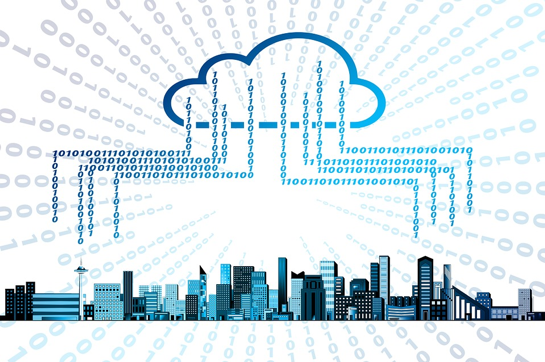What is the Cloud?
“The cloud” is one of the most vague terms in business today. It’s repeated often, yet few people adequately comprehend its meaning. The cloud refers to software that is running on the internet instead of your local computer. Nearly everyone interacts with the cloud daily. Services like iCloud, Google Drive and Netflix are all running on the cloud, meaning the internet. The cloud allows you to access your data with any device that has an internet connection; if there was no cloud, your information would be kept locally and you couldn’t access it anywhere else.

The cloud has numerous benefits for businesses and individuals. By having data be run and stored on the internet instead of your local device, computing power has grown exponentially for all users. The computing power is apparent for people in small ways like faster video loading, quicker software updates and increased memory and storage in devices.
Cloud computing allows for data to be stored at a 3rd party location (servers, data centers, etc.) instead of a computer hard drive or local storage. This removes many data constraints for both businesses and people which has resulted in increased computing power and flexibility. Additionally these data centers have reached economies of scale which has resulted in better prices for cloud computing and storage for everyone involved.
What are the different types of cloud computing?
There are several main categories of cloud computing utilized today; these include Platform as a Service (Paas), Infrastructure as a Service (Iaas) and Software as a Service (Saas).
Platform as a Service (PaaS) allows companies to build, test and deploy software products. This method of cloud computing is helpful and cost-effective for companies that develop software and web applications. Examples of PaaS include Windows Azure, Heroku and AWS Elastic Beanstalk.
Infrastructure as a Service (IaaS) shares some similarities with PaaS but it’s much more fundamental and complex. IaaS serves as a complete virtual software instructure for companies by managing both physical (servers, data centers, etc.) and digital needs. IaaS is highly scalable for companies and can handle great digital bandwidth to meet any infrastructural needs. Examples of IaaS include AWS, Microsoft Azure and Cisco Metacloud.
Software as a Service (SaaS) is the most recognizable kind of cloud computing. SaaS is the most commercial-ready kind of cloud computing; it is generally a completed software solution that is deployable immediately. SaaS solutions manage all the backend logistics to ensure that customers can use all features 24/7. Accessibility is nearly infinite for SaaS products as even individuals can purchase and use products relatively quickly. Some examples of SaaS products include Microsoft Office, Salesforce and Google Apps.





